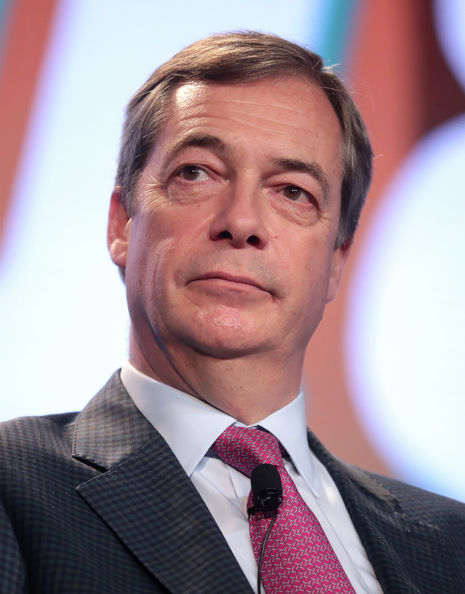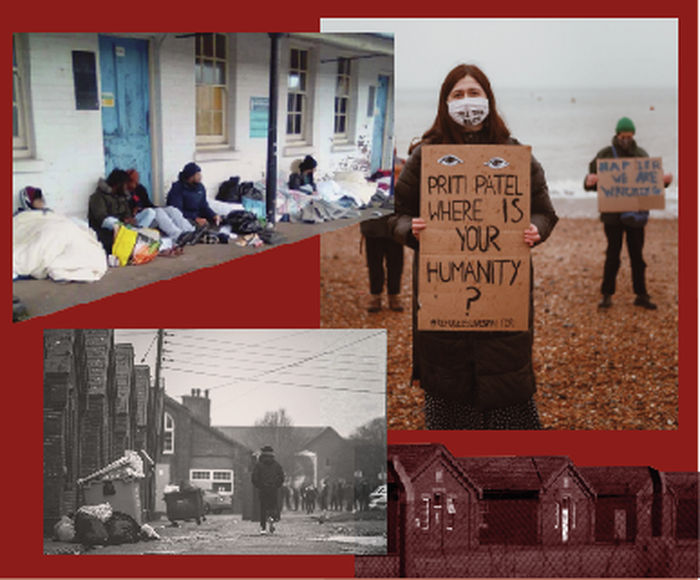Farage’s views on human rights are a danger to us all
Dom Bridge analyses the ex-UKIP leader’s recent video on the so-called ‘EU Human Rights Act’, and argues his inaccuracies and rhetoric mask a rejection of fundamental human rights.

As an article in Varsity recently argued, we are now more vulnerable to misinformation than ever before. So it is perhaps not surprising that last week (16/2/21), Nigel Farage released a video provocatively entitled, ‘Scrap the EU Human Rights Act’.
The contents of this six minutes and fifteen-seconds instalment will surprise few; it is a roundup assessment of why Farage believes our human rights framework isn’t working, littered with all of the trademark Farage phrases you might expect. As for sophistry: this video is bursting at the seams with it. With this in mind, it is important to understand how Farage’s take on human rights – the ‘deport the terrorists’ conception – is, by definition, no conception of human rights at all. And if removing human rights is what he believes in, then he should be bold enough to say so.
Of course, writing this article may fan the flames that those who share Farage’s views want and need in order to remain relevant – something I’m very much keen to avoid. However, the more than 12,000 thumbs-up and over 140,000 views the video has amassed on YouTube at the time of writing suggest that the situation has rather gone beyond that point. It is crucial that this uninviting viewpoint - purporting to favour scrapping certain human rights provisions - should not be allowed to go unchallenged.
But to tackle this issue, we need to familiarise ourselves with a few basic points about the legal framework we’re considering. Contrary to Farage’s claims, there is no such thing as the ‘EU Human Rights Act’. True, our human rights predominantly come from the European Convention on Human Rights (ECHR), an international treaty that gives us our ‘right to life’, and ensures the ‘prohibition of torture’ and freedom from subjection to ‘inhumane or degrading treatment or punishment’. But, contrary to common misconceptions, this is not the EU’s creation. It is enforced by the European Court of Human Rights (ECHR) in Strasbourg which, once again, is completely separate from the EU. Owing to the nature of our constitution, for this to be enforceable by our domestic courts we have the Human Rights Act 1998 (HRA).
“Protecting one individual’s rights does not place their rights above anyone else’s.”
But let’s allow Farage the benefit of the doubt that the title of his video was an irresponsible and sarcastic yarn, rather than a deliberate attempt to deceive his 1.6 million Twitter followers.
Before addressing his main premise, it is worth spending a little time on a few of his subsidiary points. Firstly, protecting one individual’s rights does not place their rights above anyone else’s. And as we’ve already seen, his claim that leaving the ECHR would mean that ’Brexit will be complete’, repeated from the run-up to the EU referendum, marks a stark contrast to reality that has not softened since 2016. Indeed, one of the most ironic outcomes of Brexit is that we are now, as part of the EU-UK deal, tied into some degree of ECHR based rights protection.
But what is the main problem? The likes of the ex-UKIP leader tend to pick on a minority of cases brought under the HRA to challenge the whole framework. These tend to share a common thread, starting with - in most cases - a foreign individual committing an offence, often terror-related. The government then seeks to deport the individual, which may then be blocked by the courts, usually because deportation would breach one or more of the various positive obligations the state owes to those within its jurisdiction.
It is unlawful, for example, for the state to deport a person when they will face the death sentence, some indefinite forms of whole-life sentence, or will be subject to inhumane or degrading treatment. Farage appears instead to feel that the courts should not block these deportations. Whilst he doesn’t fully explain his reasoning, the implication from the video is that he believes deportations should not be blocked when the individual concerned is foreign, and a convicted criminal.
“Speaking out explicitly against human rights is to support a policy unwise for its political, legal and social ramifications.”
The concept of a human right is, as the name suggests, a right that everyone has by virtue of being human. It seems Farage feels some individuals should be liable to deportation notwithstanding the likelihood of subsequent rights breaches based on a certain characteristic, such as their nationality or convictions. This is to suggest that a person’s right should be degraded because of their characteristics. In this view, there can be no human rights at play at all. After all, we enjoy human rights by virtue of being human - regardless of our characteristics or conduct. However we look at it, Farage is speaking out against human rights.
This begs the question as to why he and others like him feel compelled to cloak their opinions in Brexit-related rhetoric rather than spelling them out for what they are. Speaking out explicitly against human rights is to support a policy unwise for its political, legal and social ramifications, but it is important in a functioning democracy that everyone should be entitled, within certain limits, to express their views - no matter how injudicious the policy. So, once again, why does Farage feel the need to cloak his argument and deceive his audience as to what it means?
The answer is as simple as it is obvious. To set out his rationale as exactly what it is – a call to expressly abolish certain human rights – would be to show his views to be the ill-conceived, ill-judged, and downright dangerous mumblings they are. We are more vulnerable to misinformation and deception than ever before - and it is paramount that we do not allow Farage to capitalise on this.
 News / Uni Scout and Guide Club affirms trans inclusion 12 December 2025
News / Uni Scout and Guide Club affirms trans inclusion 12 December 2025 News / Cambridge Vet School gets lifeline year to stay accredited28 November 2025
News / Cambridge Vet School gets lifeline year to stay accredited28 November 2025 News / Cambridge study finds students learn better with notes than AI13 December 2025
News / Cambridge study finds students learn better with notes than AI13 December 2025 Science / Did your ex trip on King’s Parade? The science behind the ‘ick’12 December 2025
Science / Did your ex trip on King’s Parade? The science behind the ‘ick’12 December 2025 News / Pembroke to convert listed office building into accom9 December 2025
News / Pembroke to convert listed office building into accom9 December 2025








